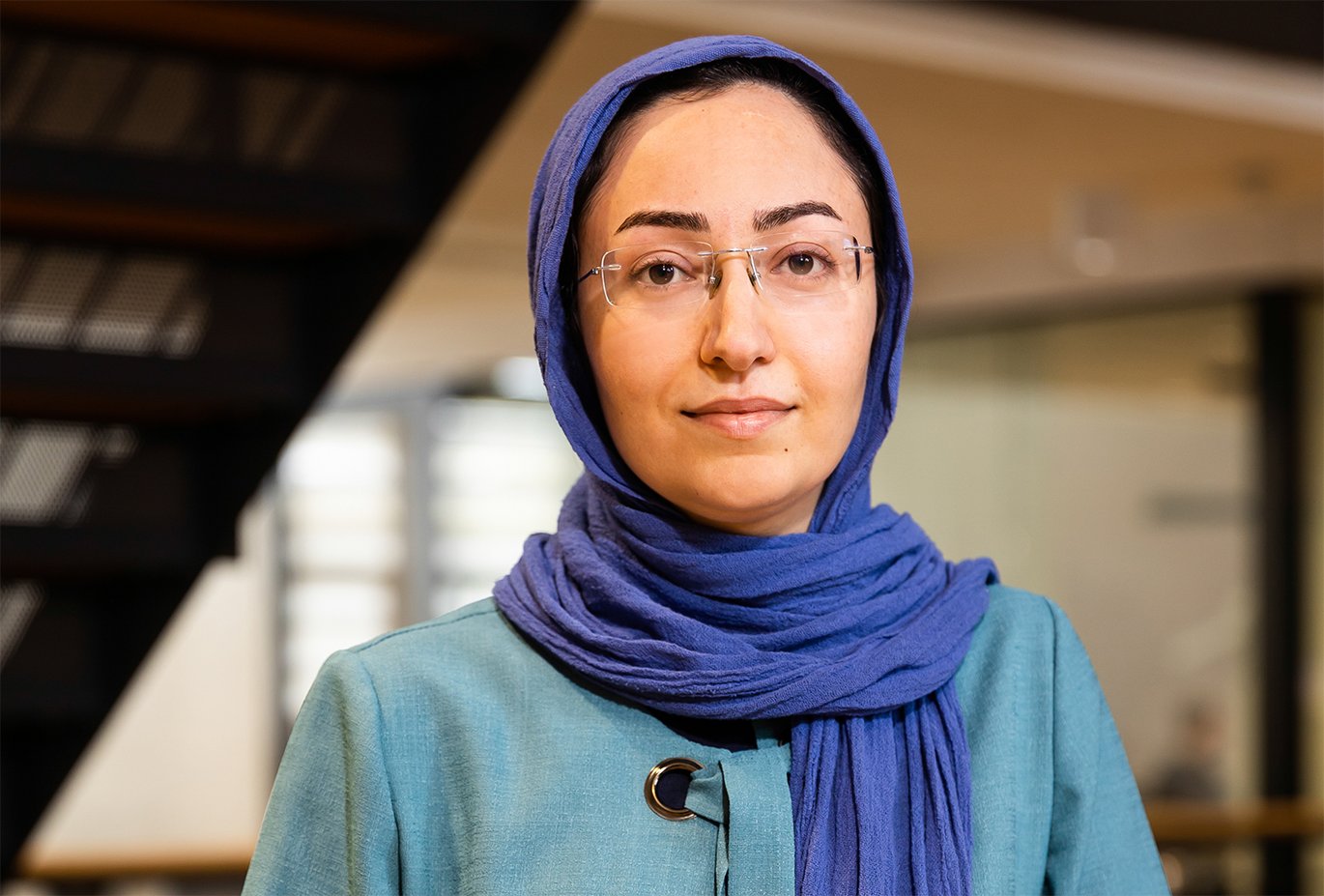She receives award for breakthrough in efficient data transmission
Software engineer Niloofar Yazdani has with new solutions for efficient data transmission made it more sustainable to transfer data from the Internet of Things. That is why she receives Aarhus University Research Foundation's PhD prize.

For our smart homes, companies and public spaces with their increasing array of wirelessly connected devices like refrigerators, plants, lamps and coffee machines in the so-called ‘Internet of Things’ (IoT) to function, our digital infrastructure needs to keep up.
Software engineer Niloofar Yazdani, who has a degree in electronics engineering from her home country Iran, has with her PhD made a solid effort to push the development of data transfer in a faster and more sustainable direction.
“My thesis focuses on efficient IoT data transmission in three main areas: multi-source data compression, recovery of damaged received data and network coding. In each of these areas, I have contributed with new ideas,” she says.
There is highly practical applicability in Niloofar Yazdani’s work. Together with her colleague she collaborated with Kamstrup among other companies. Using a special form of data compression, she helped to show significant reductions in the amount of data transmitted from their sensors.
“If you have several temperature sensors in a building that are sending data to a server, it’s obvious that the data being generated is highly similar. In these cases, multisource data compression can reduce the total data transmission on the network significantly by exploiting the similarity of the data. Usually this would require that the sensors coordinate with each other. With our proposed technique we can do multisource data compression without the sensors coordinating with each other,” Niloofar Yazdani explains.
(The article continues below the video)
A greener alternative
One of the advantages of Niloofar Yazdani's methods is that they that it uses significantly less energy.
“Our proposal for multi-source data compression is interesting for a lot of applications. The technique is loss-free, in other words, it doesn’t affect the quality of the data. At the same time, it reduces the amount of energy needed to transfer the relevant data – and energy consumption is top of mind these days.”
With her new data compression and transmission technique, she demonstrates how data transmission can be reduced and take advantage of multisource data compression without the need for individual sensor units to ‘know’ about data from each other. To achieve something similar with previously existing techniques would require extremely complex mechanisms.
Faster and more efficient
One important factor is that Niloofar Yazdani’s data compression and transmission technique also minimises data delay.
“With conventional techniques, there’s time considerations involved, because the sending device must gather sufficient data before it can deliver the high compression, which takes time. But we’ve shown that our proposed data compression technique removes these considerations, which means we can improve the compression rate and minimise delay at the same time,” she explains.
Niloofar Yazdani has also broken new ground with her techniques for restoring damaged received data for a new kind of network coding she calls ‘Revolving Codes’.
These are some of the results and challenges she continues to work on at the research-based company TWTG in Southern Holland, which develops IoT devices for the industry.
Loved being a PhD student
This is the 20th time that the Aarhus University Research Foundation recognizes PhD graduates who have received extraordinary recognition in their field.
“It is a great recognition for me to receive this award. I am deeply happy for finishing this long journey in the best possible way. This prize is an indication that I have done a good job and that it has made a difference that I have been so passionate along the way. Because I loved being a PhD student,” says Niloofar Yazdani.
The prize is 50,000 kr. which is given in recognition of her academic achievement. Candidates for the award are nominated by the faculties among their new PhD graduates. A selection committee with representatives from Aarhus University and Aarhus University Research Foundation selects the prize winners from among the nominated candidates.
Contact
Journalist Solveig Kolstad
Mail: solk@au.dk
Journalist Jesper Bruun
Mail: bruun@au.dk
Tel.: +45 42404140
